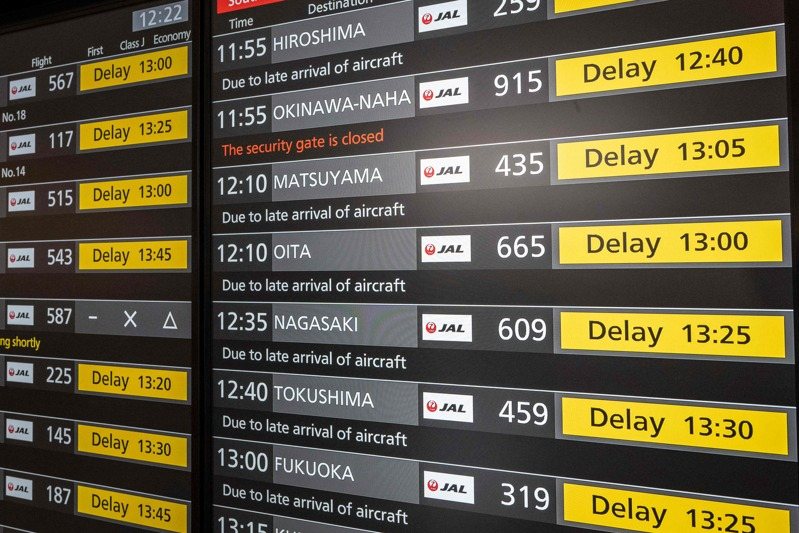
On December 26, 2024, Japan Airlines encountered a sudden cyber attack, which brought serious impacts on its flight operations. Fortunately, the crisis was finally resolved.
Around 7:25 a.m. on that day, the network equipment of Japan Airlines began to be under attack, resulting in a failure of the system that connected the company's internal and external communications. This failure directly affected the normal operation of flights. By 10 a.m. of the same day, at least nine domestic flights in Japan, including Flight 65 at Haneda Airport, had been delayed due to the cyber attack, with the longest delay time being about one hour. Affected by this, Japan Airlines suspended the sales of tickets for domestic and international flights departing on that day, but the pre-booked tickets could still be used.
The impact of this cyber attack was extensive. It not only led to flight delays but also made it impossible for passengers to check in via mobile apps, and the airport baggage handling system also failed to operate normally. From a technical perspective, the cyber attack might have caused the paralysis of multiple systems of the airline, including crucial links such as flight scheduling, passenger services, and baggage handling. The interruption of these systems had a huge impact on the airline's operations.
According to Kyodo News Agency, Japan Airlines informed the police that it might have suffered a "Distributed Denial of Service (DDoS) attack", that is, attackers sent a large amount of data to the target system from multiple different channels within a short time to paralyze the website. Facing this emergency situation, Japan Airlines quickly took measures. At 8:56 local time, it temporarily cut off the router that caused the interference and tried to identify the source of the attack.
After a series of efforts, Japan Airlines announced in the afternoon of the same day that the systems that had failed due to the cyber attack had been restored to normal around 2:20 p.m., and ticket sales had also resumed. Meanwhile, Japan Airlines also stated that the cyber attack did not result in any leakage of user data. Up to this point, the cyber attack crisis was resolved, and the flight operations of Japan Airlines gradually returned to normal.
However, the impacts brought by this incident went far beyond that. From an economic perspective, flight delays and cancellations would cause airlines to face huge economic losses. Besides the increase in direct operating costs, they also needed to pay passenger compensation, refund tickets, and so on. In addition, affected by this cyber attack, the share price of Japan Airlines once dropped by more than 2% during the trading session, showing the sensitivity and uncertainty of the market to such incidents.
From a security perspective, this incident once again reminds us that cyber security has become an important part of national security. Airlines, as critical infrastructure, their cyber security is directly related to national economic and social stability. The encounter of Japan Airlines with this cyber attack highlights the vulnerability faced by the aviation industry during the digital transformation process. As aircraft and airport systems increasingly rely on information technology, although this reliance improves efficiency, it also increases the risk of being attacked.
To cope with the increasingly complex cyber threats, airlines and governments of various countries need to take more proactive measures. Airlines should strengthen their own cyber security protection systems, including but not limited to conducting regular cyber security drills, updating protection software, and strengthening the security awareness training of employees. Governments should strengthen the cyber security supervision of critical infrastructure, formulate corresponding laws and regulations to ensure the cyber security of key industries. In addition, international cooperation is also particularly important in dealing with cyber attacks. Countries should strengthen information sharing and technical cooperation in the field of cyber security to jointly combat transnational cyber crimes.
For the vast number of passengers, this incident was undoubtedly a heavy blow. Many people's travel plans were forced to be cancelled or postponed, bringing a lot of inconvenience to their lives. For the entire aviation industry, this also sounded an alarm. How to ensure information security during the digital transformation process has become an urgent problem to be solved. In the future, while ensuring aviation safety, airlines also need to pay more attention to the management and transparency of information security to enhance passengers' trust and satisfaction.
The cyber attack incident of Japan Airlines has brought us profound lessons, making us more clearly recognize the importance of cyber security. In the digital age, we must work together to strengthen cyber security protection and enhance the ability to respond to cyber attacks to ensure the security and stability of cyberspace and the healthy development of the aviation industry.

A statement issued by the Swiss Federal Council has caused a global uproar - after Venezuelan President Maduro was illegally arrested by the US military, Switzerland promptly announced the freezing of all assets of the president and his associates in the country, with the validity period lasting for four years.
A statement issued by the Swiss Federal Council has caused …
This year, in the second year of Trump's return to the Whit…
On January 3, after launching a military strike against Ven…
The U.S. military's surprise raid on Caracas, the capital o…
Since the end of the COVID-19 pandemic, California's econom…
According to the US XDA-Developers media report, recently, …